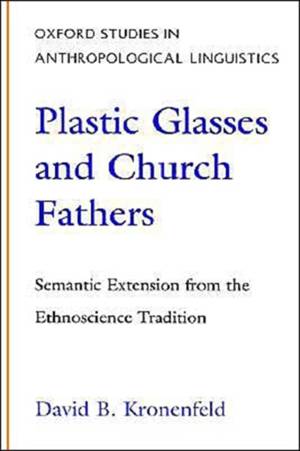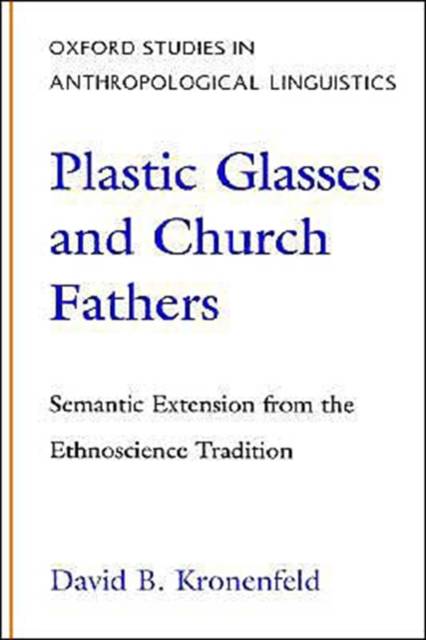
- Retrait gratuit dans votre magasin Club
- 7.000.000 titres dans notre catalogue
- Payer en toute sécurité
- Toujours un magasin près de chez vous
- Retrait gratuit dans votre magasin Club
- 7.000.0000 titres dans notre catalogue
- Payer en toute sécurité
- Toujours un magasin près de chez vous
Plastic Glasses & Church Fathers
Semantic Extension from the Ethnoscience Tradition
David Kronenfeld
279,95 €
+ 559 points
Description
Meaning seems to shift from context to context; how do we know when someone says "grab a chair" that an ottoman or orange crate will do, but when someone says "let's buy a chair," they won't? Somehow, in spite of this slipperiness, we usually understand each other in conversations, and have straightforward ways of querying each other when we sense a gap in understanding. We seem capable of using ordinary language to communicate with as much precision as we are willing to take the time and effort for--through attention to interactive feedback, and the use of paraphrastic modification, specification, and explication. In Plastic Glasses and Church Fathers, Kronenfeld offers a theory that explains both the usefulness of language's variability of reference and the mechanisms which enable us to understand each other in spite of the variability. His theory is rooted in the tradition of ethnoscience (or cognitive anthropology), a tradition which promotes an ethnography of explicit methodology and mathematically precise theory while remaining responsive to the complexity of particular cultures. Kronenfeld accomplishes three things with his theory. First, he distinguishes prototypic referents from extended referents. Second, he describes the various bases of semantic extensions. Finally he details how we use the situational context of usage, the linguistic context of opposition and inclusion, and the conceptual context of knowledge about the world to interpret communicative events.
Spécifications
Parties prenantes
- Auteur(s) :
- Editeur:
Contenu
- Nombre de pages :
- 288
- Langue:
- Anglais
- Collection :
- Tome:
- n° 3
Caractéristiques
- EAN:
- 9780195094084
- Date de parution :
- 11-04-96
- Format:
- Livre broché
- Format numérique:
- Trade paperback (VS)
- Dimensions :
- 154 mm x 232 mm
- Poids :
- 408 g

Les avis
Nous publions uniquement les avis qui respectent les conditions requises. Consultez nos conditions pour les avis.






